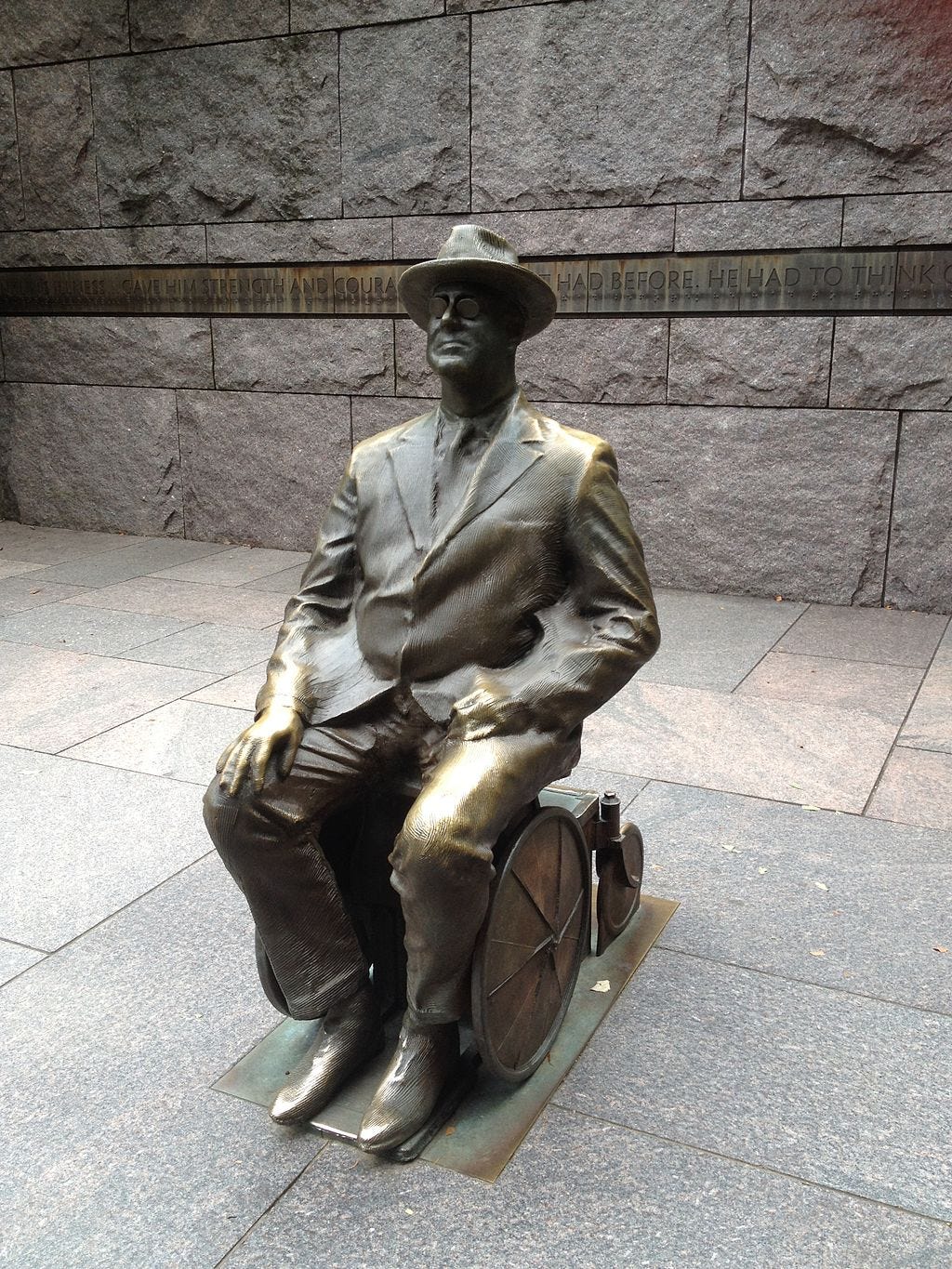What does the public have a right to know?
This week saw a televised debate between the candidates for a senate seat in Pennsylvania. Dr Mehmet Oz is the Republican and John Fetterman the Democrat. Dr Oz I’d been aware of for years as a TV quack and friend of Oprah; Fetterman I’d only heard of this year.
But the coverage of Fetterman’s health (he suffered a stroke) and how it may or may not be affecting his abilities led to a lot of outraged discussion online.
Critics have been referred to as “ableist” for judging him, meanwhile others have argued that the media played a role here, in covering up his health situation until after the primary. Holly Math Nerd gives her insights here, as someone who uses hearing aids and assistive tech.
I’m not in a position to judge Fetterman’s situation, but I’m more interested in the long view of the media’s attitude to politicians’ private lives (and health concerns), and whether the public have a “right to know”.
Famously, FDR managed to hide the effects of his polio from the public, largely with the collusion of the press corps around him. Roosevelt also did not have to contend with television cameras (and televised debates have been snookering even healthy candidates since the 1960s). There is no way that a President could hide such a condition today, when someone with a cellphone would get a shot of a crutch or a wheelchair and it would be online in minutes.
I have mixed feelings as a historian about the fact that at Roosevelt’s home in Hyde Park, NY, they have leg braces on display in his bedroom. And at his memorial in Washington there is a statue of him in a wheelchair.
On the one hand it’s a truth that wasn’t publicly acknowledged during his lifetime. Celebrating the fact that he was a man with disabilities who held high office and was a major figure on the world stage offers representation for other wheelchair users. On the other hand, it seems somehow disrespectful to represent him in that way, given how hard he worked to keep it hidden. The level of willpower (and physical exertion) to hold himself up at a lectern, to be seen to be standing and walking, feels like something that should be respected too. (Interestingly, his statue in London shows him standing)
Of course, today is not the 1930s. Even if the media felt it was their job to help a politician maintain a facade, members of the public certainly wouldn’t. The 24 hour news cycle has to be filled, and filled it will be, with the prurient stories that even the trashiest newspapers of a century ago would have flinched at running.
The idea that anyone running for office should be an open book is ostensibly a democratic argument. But the level of scrutiny (and public shredding) that candidates must pass through can’t be healthy. It must actively deter many decent people from public life, and mean that only the most cynical and exhibitionist get through - a trend that has only worsened with social media.
Within a decade we will have more candidates for office who spent their teens on FB and Instagram, with all the issues that is likely to bring. I’m intrigued to see whether it just makes things worse, or if there will finally be a turn back to letting people’s lives be their own (as everyone else will also have embarrassing teenage photos or dubious undergraduate opinionating online).




